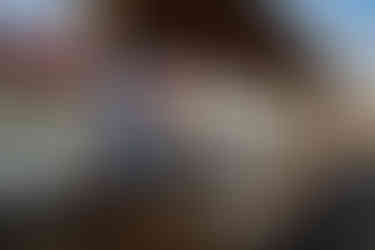Ola Allouz, a Dubai-born Emirati visual artist talks about her project 'Archiving the Now'
- Uncommon Studio
- Oct 13, 2025
- 4 min read
Updated: Oct 14, 2025
With Ola Allouz on ‘Archiving the Now’

I believe photographs carry a powerful cultural impact they preserve stories, convey emotions, and connect people in new and meaningful ways. The project Archiving The Now grew out of this belief. In many ways, the idea was always present in my mind, but it truly found its name and direction during the COVID-19 pandemic, a time when the world slowed down and gave us space to reflect. With that pause, I had the opportunity to think deeply about how to document and present the everyday moments that shape who we are.
The project is built around the idea that “what we document today is what we will realize the value of in the future.” Have there been moments where you’ve personally experienced this, where the archive proved especially meaningful in your work?
What makes 'Archiving The Now ' special is that it goes beyond my own lens. From the very beginning, it was designed as a community project, a platform that invites photographers and creatives to contribute their perspectives. By bringing together many voices and visions, it becomes more than an archive; it’s a living memory of our collective experiences, one that continues to evolve and remind us of the importance of documenting our present for the future.
I’ve always been deeply influenced by my city, Dubai. Growing up here, I witnessed constant change, and when I look back, I realize the only way to truly see and feel those changes is through stories and photographs. Our memories alone can’t hold all the details unless they are preserved visually.
Family albums played a big role in shaping this understanding for me. They taught me how meaningful it is to build our own archives—not just of strangers or public life, but of our own families, spaces, and communities. These collections of moments become powerful storytellers in themselves.
I also remember searching for old photographs of Dubai, especially during the years when Burj Khalifa was being built. I used to pass that road every day, watching it rise from the ground, but I never thought of documenting it myself. Later, when I came across images taken by other photographers of that exact process, it struck me how important archiving is. Sometimes we take the familiar for granted—whether it’s people, places, or even our daily surroundings—without realizing their value until much later. That realization continues to remind me why Archiving The Now matters.
It’s not about the tools, it’s about the stories. Powerful images come from meaning and emotion.. Your photographs are your voice, so let them represent you well. Intimate friendships, the bonds that define us, the gentle beauty in everyday scenes of our ordinary lives.
Archiving the Now also exists as a magazine. How has the response been so far? Do you usually work around specific themes for each issue, or is it kept more open? And how can contributors share their images with you?

So far, the response to Archiving The Now as a book has been incredibly encouraging. We’ve published two editions, each with its own approach. The first edition was completely open photographers from across the Emirates, of all ages and nationalities, were invited to share moments from daily life using whichever tools they preferred, whether digital cameras, film, Polaroids, or even smartphones. That openness allowed us to see life from many different perspectives, and it really reinforced the idea that photographs are reflections of who we are as individuals.
For the second edition, we focused on a specific theme: Expo 2020 Dubai. We launched an open call for contributions from anyone who had documented the event during its six-month run. As a city, we were proud to host a global gathering of that scale, and the book became our way of preserving those stories and memories in a form that can be shared with the world.
The submission process has always been kept simple and accessible, with everything handled online. This way, contributors from different backgrounds can easily share their images, helping us continue to grow a collective archive that reflects both personal and shared experiences.
What are some recurring themes or patterns you’ve noticed in the photographs that come your way?
For me, the images that stay with me the most are those that carry emotions and tell stories, pictures that present our country, and especially our city Dubai, in a way that feels lived and authentic, not just like the polished commercial photographs we often see online.Some submissions have the power to transport you to make you pause, reflect, and even feel something unexpected.
A recurring theme I’ve noticed is the relationship between people and the city: how daily life, routines, and even quiet moments interact with Dubai’s ever-changing landscape. Those human connections to place, told through simple yet powerful images, are what make the archive so meaningful.
About Ola Allouz
Ola Allouz is a photogrpaher from Dubai who primary focus is on capturing the beauty of everyday life and culture in her pictures. Her unique perspective has won her awards and international acclaim.
She believes that photographs has a special impact on our culture. They tell stories, show emotions, and bring people together in new ways. Through photography, we can learn more about our world and our culture.
In addition to her photography work, Ola is a Fujifilm brand ambassador and the founder of @foto.uae, where she organizes events for creative individuals in the UAE, helping them connect and build a supportive artist community.
Follow Ola Allouz
Have something to share?
If you like what we do, consider supporting us by sharing this post. To submit your visit uncommonstudio.in or mail us at uncommonstudio.in@gmail.com















Comments